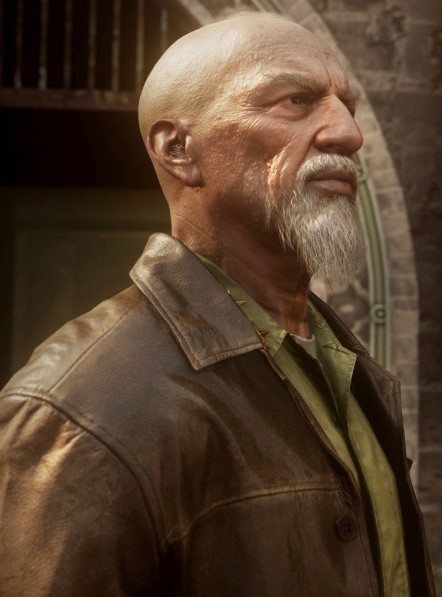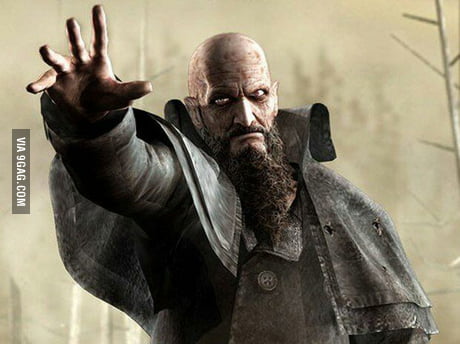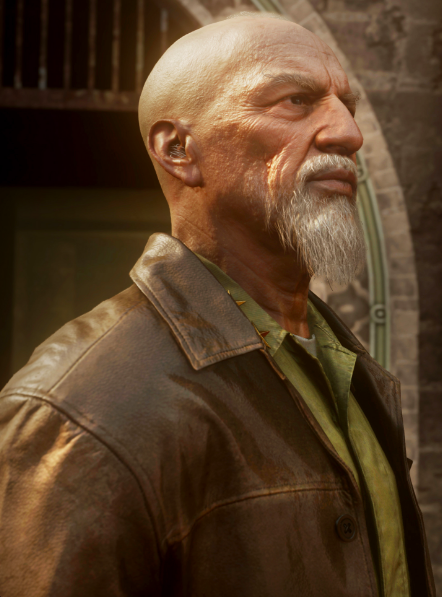
To distract America and Britain from the situation in Russia, Zakhaev fomented a resurgence of the Iraqi insurgency under Khaled al-Asad, and he secretly provided the Iraqi insurgents with a nuclear bomb.

Several Russian Army units defected to the Ultranationalists, and the possibility of the Ultranationalists acquiring control over 15,000 nuclear warheads on their seizure of power led to the United States and the United Kingdom - Zakhaev's ideological enemies - backing the Russian Loyalist movement. In 2011, following the suppression of anti-government protests by President Dmitry Medvedev, Zakhaev led his Ultranationalist followers in open rebellion against the government, sparking the Second Russian Civil War. He also utilized Vladimir Makarov, now his protégé, in committing several terrorist attacks in the 2000s to both strike fear across Europe and gather additional funding. Zakhaev continued to finance the assemblage of an Ultranationalist army equipped with military hardware, tanks, APCs, helicopters, and other state-of-the-art equipment. However, Zakhaev was driven away by his chauffeur Vladimir Makarov, and he went underground while the SAS believed him to be dead. Captain John Price shot Zakhaev with a sniper rifle during a major arms deal, severing his left arm. Zakhaev engaged in arms dealing in the post-Soviet republics to remain a powerful warlord, and, in 1996, the British SAS was ordered to assassinate Zakhaev after it was revealed that he intended to purchase nuclear materials from local arms dealers in Pripyat, Ukraine. In 1994, Zakhaev went under an emergency heart bypass surgery his son, Viktor, perceived this as his heart breaking from the Soviet Union's collapse. The RUP was a key participant in the National Salvation Front of Russia, and, following the FNS' breakup in 1994, the RUP attracted most of the FNS remnants as well as dissident nationalists from across the political spectrum (from neo-Stalinists and Marxist-Leninist hardliners to Russian National Unity neo-fascists, National Bolsheviks, and neo- Imperialists). However, Zakhaev realized how dangerous Perseus was, preventing him from taking control of a facility in Donetsk which held potent Nova-4 gas.įollowing the Dissolution of the Soviet Union in 1991, Zakhaev set about restoring Russia's former glory by founding the Russian Ultranationalist Party. In the mid 1980s, Zakhaev met the legendary spymaster " Perseus," who convinced Zakhaev to join his cause by laying into Zakhaev's distaste with Gorbachev's pursuit of cultural and economic freedoms. Bell answered that they were reported to Commander Anatoly Sobel, Zakhaev letting them off the hook and promising to send their regards to Sobel.

Zakhaev later ran into the disguised CIA agents Russell Adler and " Bell" in an elevator as they headed to the bunker level, inquiring into their purpose.

Colonel Lev Kravchenko assisted Zakhaev with his investigation, in which Zakhaev restricted all keycard access to the bunker beneath the building, save for General Anton Charkov. Zakhaev was incensed by Mikhail Gorbachev's Glasnost and Perestroika reforms during the 1980s, though he served directly under him in 1981 in an investigation into a mole in the KGB headquarters at the Lubyanka. He sent his son Viktor Zakhaev to an elite boarding school before re-enrolling him in a military academy after he was expelled for his unruly behavior.

He rose in the ranks of the Interior Ministry before becoming a high-ranking official at the height of the Cold War as Imran. Imran Dragovich Zakhaev was born in the Chechnya, Russian SFSR, Soviet Union to a Chechen family. Zakhaev in Pripyat, Ukraine, 1996 Early life


 0 kommentar(er)
0 kommentar(er)
